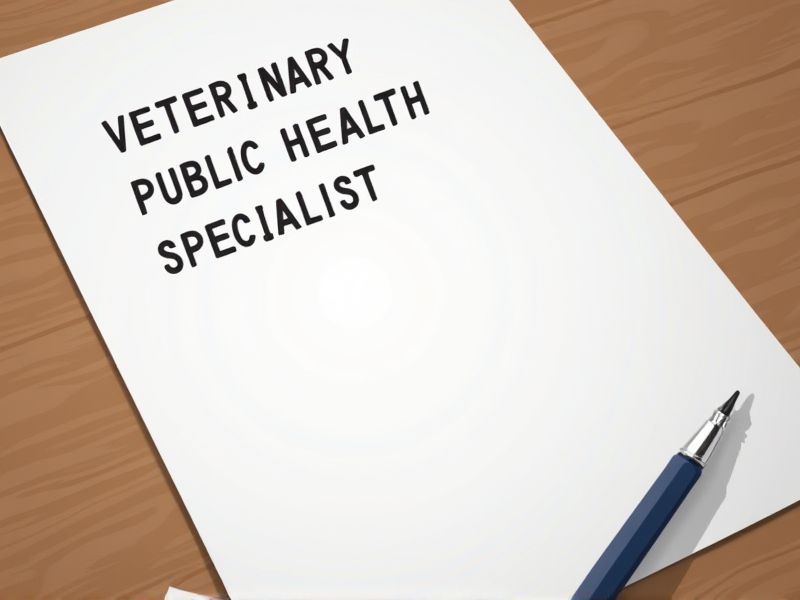
Veterinary Public Health Specialists play a critical role in ensuring the safety of food supply and controlling zoonotic diseases, necessitating a comprehensive understanding of both animal and human health dynamics. To effectively carry out their responsibilities, these specialists must have a solid foundation in epidemiology, disease surveillance, and risk analysis which is bolstered by specific certifications. Such credentials validate their expertise and enhance their credibility in cross-disciplinary settings involving veterinarians, public health officials, and regulatory agencies. Here are several key certifications that might be essential for a Veterinary Public Health Specialist.
Diplomate, American College of Veterinary Preventive Medicine (ACVPM)
Achieving Diplomate status with the ACVPM represents rigorous expertise in veterinary preventive medicine, essential for addressing complex public health challenges. This qualification enhances credibility and trust among stakeholders, crucial for leading and coordinating health initiatives. Diplomates possess advanced knowledge in epidemiology and biostatistics, enabling effective disease surveillance and outbreak management. Such expertise is vital in integrating animal health and public policies, promoting a cohesive approach towards One Health objectives.
Field Epidemiology Training Program (FETP) Certificate
The Field Epidemiology Training Program (FETP) Certificate equips Veterinary Public Health Specialists with skills crucial for tracking and controlling disease outbreaks. It provides specialized knowledge in understanding zoonotic diseases, which are diseases transferable between animals and humans. Possessing this certificate enhances credibility and recognition within public health sectors. In collaborative efforts, it bridges gaps between human and veterinary health, fostering a One Health approach for comprehensive disease management.
One Health Certification (One Health Commission)
One Health Certification is needed for Veterinary Public Health Specialists because it enhances their ability to effectively address interconnected health issues between humans, animals, and the environment. By obtaining this certification, specialists gain comprehensive knowledge in managing zoonotic diseases, which are responsible for at least 60% of emerging infectious diseases. It promotes interdisciplinary collaboration, aligning with the global trend towards integrated health approaches, as emphasized by the World Health Organization (WHO). Implementing this certification aids in developing robust preventive strategies, reducing healthcare costs and disease transmission risks across species.
USDA Veterinary Biosecurity Certification
USDA Veterinary Biosecurity Certification equips Veterinary Public Health Specialists with critical knowledge on controlling and preventing the spread of infectious diseases among animal populations. Lack of certification may result in insufficient biosecurity measures, which can lead to significant outbreaks impacting public health. This certification ensures specialists implement evidence-based practices in controlling zoonotic diseases, reducing potential economic losses in the agricultural sector. It fosters global harmonization of animal health standards, facilitating safer trade and ensuring compliance with international regulations.
Certified Food Safety Veterinarian (CFSV)
Veterinary public health specialists benefit from a Certified Food Safety Veterinarian because their expertise ensures the safety and quality of animal-derived food products. CFSVs possess specialized knowledge in identifying and mitigating potential foodborne risks, crucial for preventing outbreaks and protecting public health. Their role in monitoring and enforcing food safety standards helps maintain consumer trust in the food supply chain. Without CFSVs, the integrity of food systems could be compromised, leading to increased incidence of foodborne illnesses.
HACCP Certification (Food Safety)
Veterinary Public Health Specialists benefit from HACCP Certification to ensure systematic prevention of foodborne illnesses, improving overall food safety standards. By identifying critical control points in food processing, they can minimize health risks associated with animal-derived products. The certification enhances their ability to implement regulatory compliance, aligning with industry and government standards. It also aids in building consumer trust by demonstrating a commitment to high safety and quality measures in the food supply chain.
Infection Prevention and Control Certification
Infection Prevention and Control Certification equips Veterinary Public Health Specialists with the necessary skills to mitigate the spread of zoonotic diseases. Understanding infection control protocols enhances their ability to protect both animal and human health in shared environments. Certification ensures adherence to standardized procedures, reducing the risk of cross-species pathogen transmission. Proficiency in these measures facilitates collaboration with other healthcare sectors, reinforcing integrated public health efforts.
Zoonotic Disease Prevention Certification
Zoonotic disease prevention certification equips veterinary public health specialists with essential knowledge to effectively control and prevent diseases transmissible between animals and humans. With this certification, specialists can implement best practices that safeguard public health and reduce the risk of zoonotic outbreaks. Accredited training ensures that specialists remain current with evolving pathogens and emerging health threats. This certification fosters trust and collaboration among health agencies, promoting comprehensive disease management strategies.
Biosafety Training Certification (e.g., BSL-3/4)
Biosafety Training Certification ensures Veterinary Public Health Specialists properly understand and manage the risks associated with handling highly infectious pathogens. This training mitigates potential outbreaks by teaching proper containment and decontamination procedures. Certification helps align veterinary public health protocols with international biosecurity standards, facilitating safer global health practices. By equipping specialists with the necessary skills, the risk of zoonotic disease transmission from animals to humans is reduced.
Animal Welfare Certification
Animal welfare certification enhances credibility for veterinary public health specialists, ensuring their expertise in ethical and humane treatment of animals. Certified professionals help improve public health outcomes by minimizing the risk of zoonotic disease transmission. This certification fosters public trust and strengthens the relationship between veterinarians and animal owners. Meeting welfare standards assists in promoting sustainable agricultural practices, benefiting both animals and human communities.
Summary
When you obtain certifications as a Veterinary Public Health Specialist, you can significantly enhance your expertise and credibility in the field. These qualifications often lead to more career opportunities, potentially increasing your job prospects and salary. With specialized knowledge, you're likely to contribute more effectively to public health initiatives, impacting community health positively. Your commitment to ongoing education can also inspire confidence among peers and employers, establishing you as a leader in veterinary public health.
